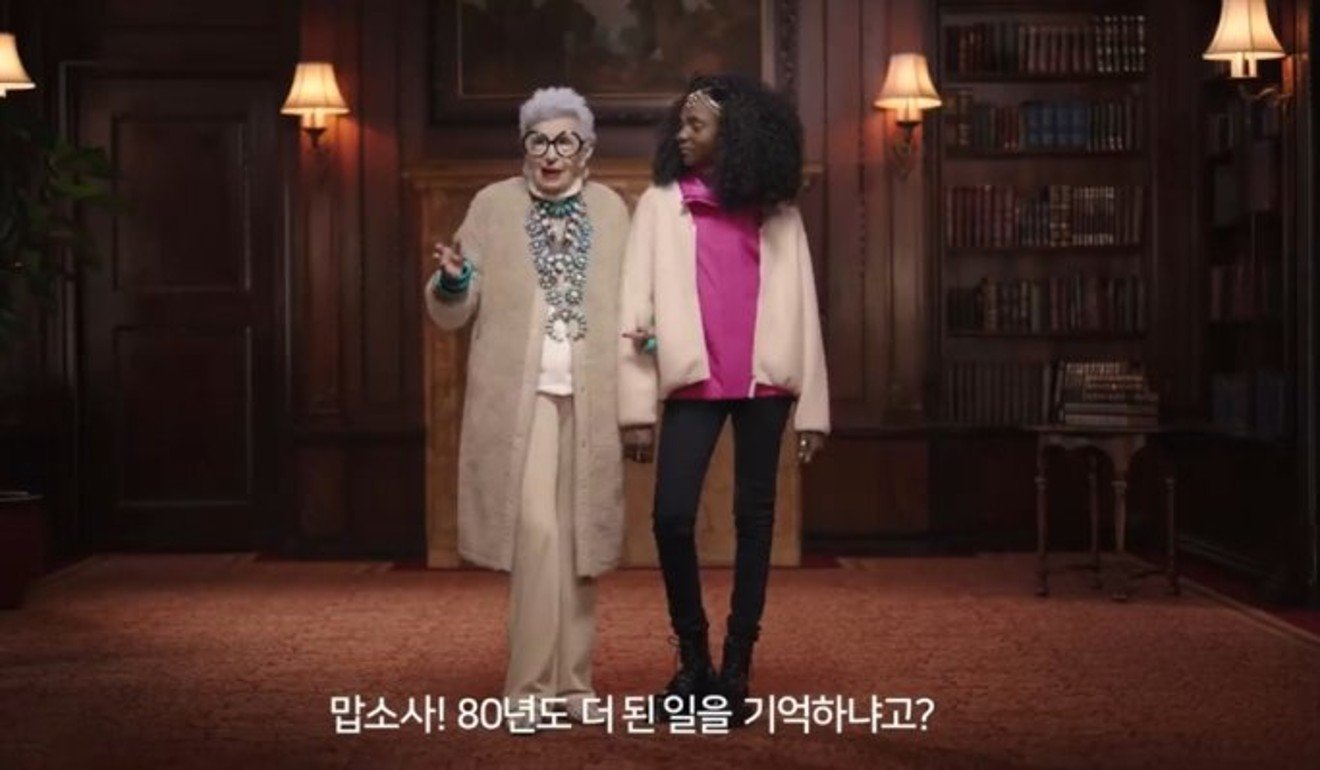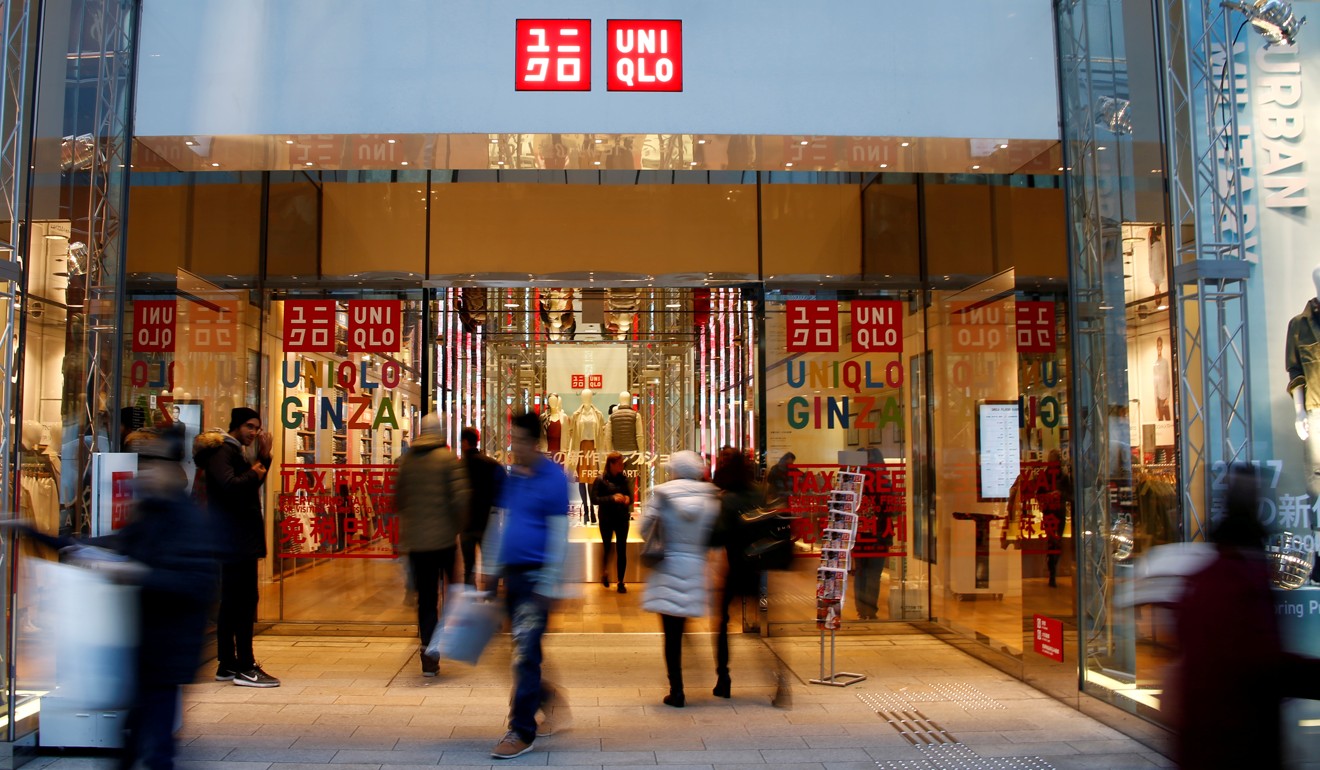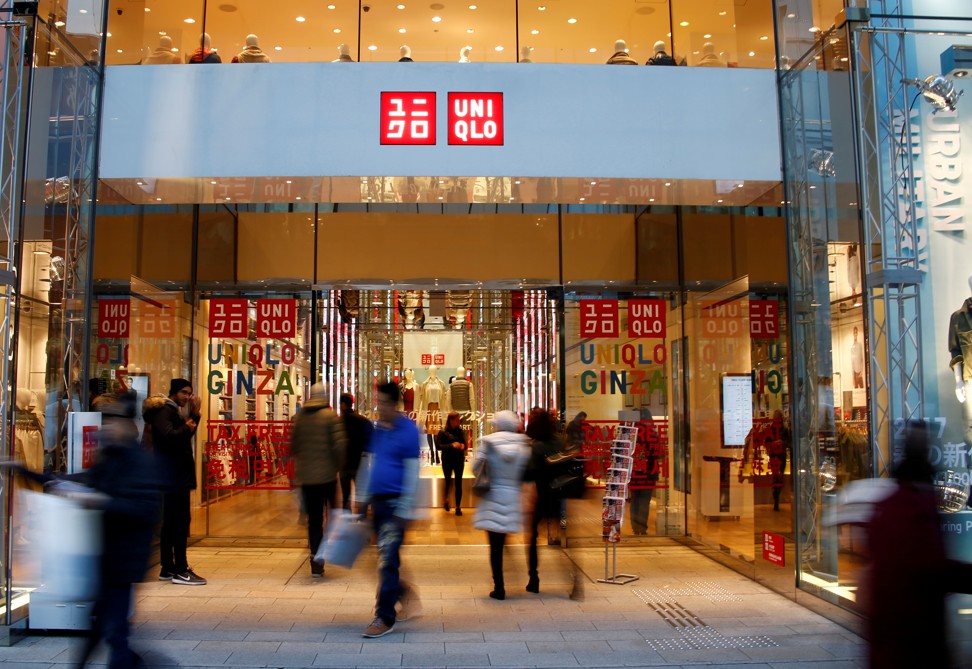
Japanese brand Uniqlo pulls ad after accusations of defaming Korean wartime sex slaves
- Japanese clothing giant Uniqlo has pulled a controversial ad accused of ridiculing Korean ‘comfort women’
- In the ad, Iris Apfel, a 98-year-old fashionista, has a conversation about fashion with a 13-year-old designer
By Kim Hyun-bin
Uniqlo, which has fallen victim to a campaign to boycott Japanese goods, recently released a TV commercial, designed to promote its “25 years of fleece”.
Apfel replies, “I can’t remember that far back,” a sentence that is sparking a debate after being translated into Korean, which states, “How can I remember it was over 80 years ago?”


Yuji Hosaka, an expert in Seoul-Tokyo ties and a professor at Sejong University, believes the advertisement is political.
“The company says it was not intended, but the advertisement portrays strong implications,” says Hosaka.
“Eighty years before was not mentioned in the English dialogue, but was included in the Korean subtitles. That was 1939, which was when forced sexual slavery was very active.”
We can’t really comprehend why it’s controversial, but there might be a misunderstanding
He added that the advertisement seemed to ridicule the victims, suggesting that they could not remember incidents that happened 80 years ago.
Amid the growing controversy, Uniqlo Korea blamed Koreans for distorting the meaning of the advertisement.
“We can’t really comprehend why it’s controversial, but there might be a misunderstanding,” Uniqlo Korea says. “We think [Korean people] have overly interpreted it in that way.”

The comment has added fuel to the boycott Japan movement, which was sparked after the Japanese government imposed export curbs on key materials used for semiconductors and display panels in July. Uniqlo suffered a 70.1 per cent drop in sales in July compared to June.
The company released another statement claiming the advertisement was designed to target customers in 24 countries where the company sells its products.
“The ad was not designed for a specific country. It’s a global advertisement, Uniqlo Korea said. “The models are real designers 98-year-old Iris Apfel and 13-year-old Kheris Rogers. The subtitles are to highlight their age difference. There are no national or historic connotations.”
With no sign of the public outrage abating, Uniqlo said, it would stop showing the advertisement in Korea.

